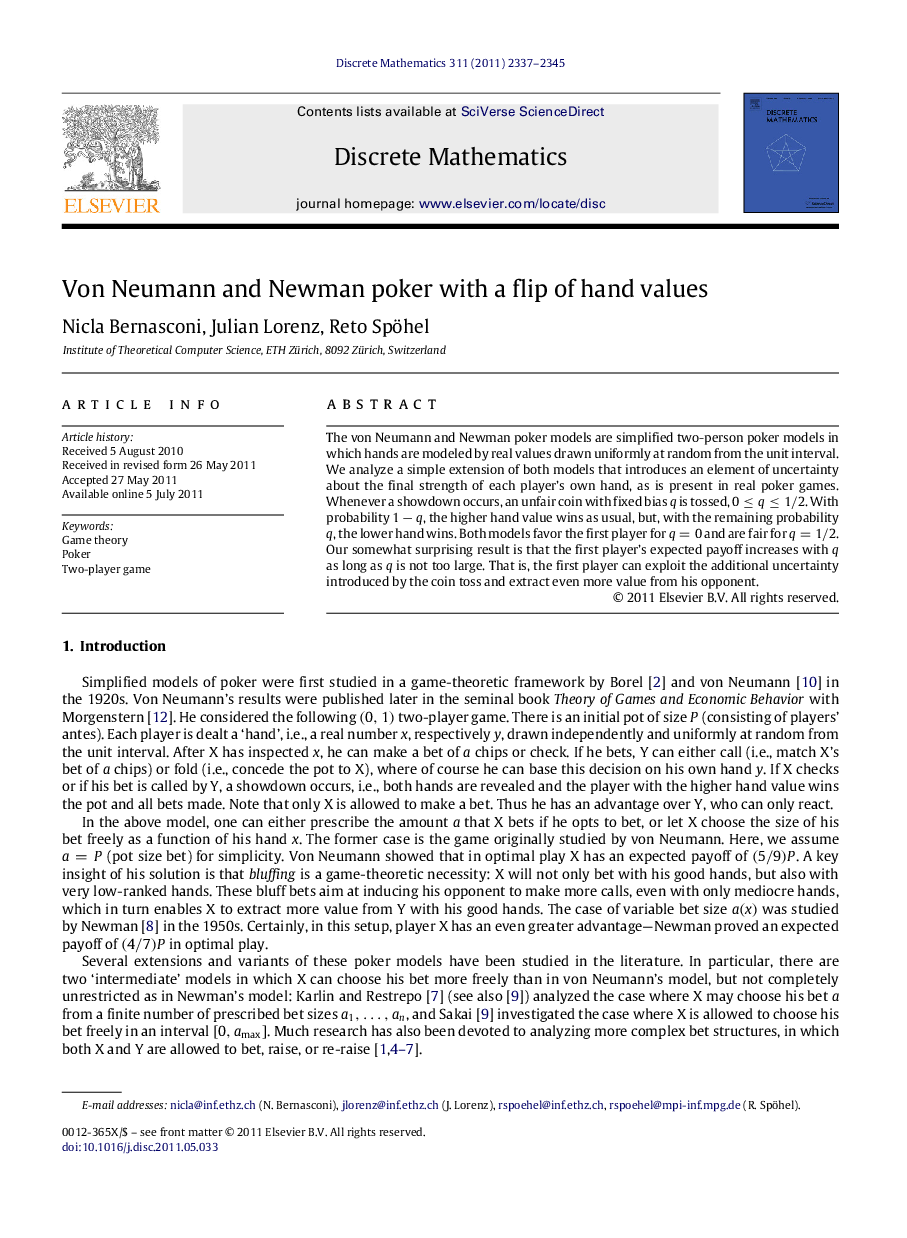| Article ID | Journal | Published Year | Pages | File Type |
|---|---|---|---|---|
| 6423546 | Discrete Mathematics | 2011 | 9 Pages |
The von Neumann and Newman poker models are simplified two-person poker models in which hands are modeled by real values drawn uniformly at random from the unit interval. We analyze a simple extension of both models that introduces an element of uncertainty about the final strength of each player's own hand, as is present in real poker games. Whenever a showdown occurs, an unfair coin with fixed bias q is tossed, 0â¤qâ¤1/2. With probability 1âq, the higher hand value wins as usual, but, with the remaining probability q, the lower hand wins. Both models favor the first player for q=0 and are fair for q=1/2. Our somewhat surprising result is that the first player's expected payoff increases with q as long as q is not too large. That is, the first player can exploit the additional uncertainty introduced by the coin toss and extract even more value from his opponent.
⺠We study extensions of two well-known simplified two-person poker models. ⺠These introduce an element of uncertainty about the final strength of players' hands. ⺠Such an element of uncertainty is also present in real poker games. ⺠The extra uncertainty benefits the bettor, contrary to a naive intuition.
